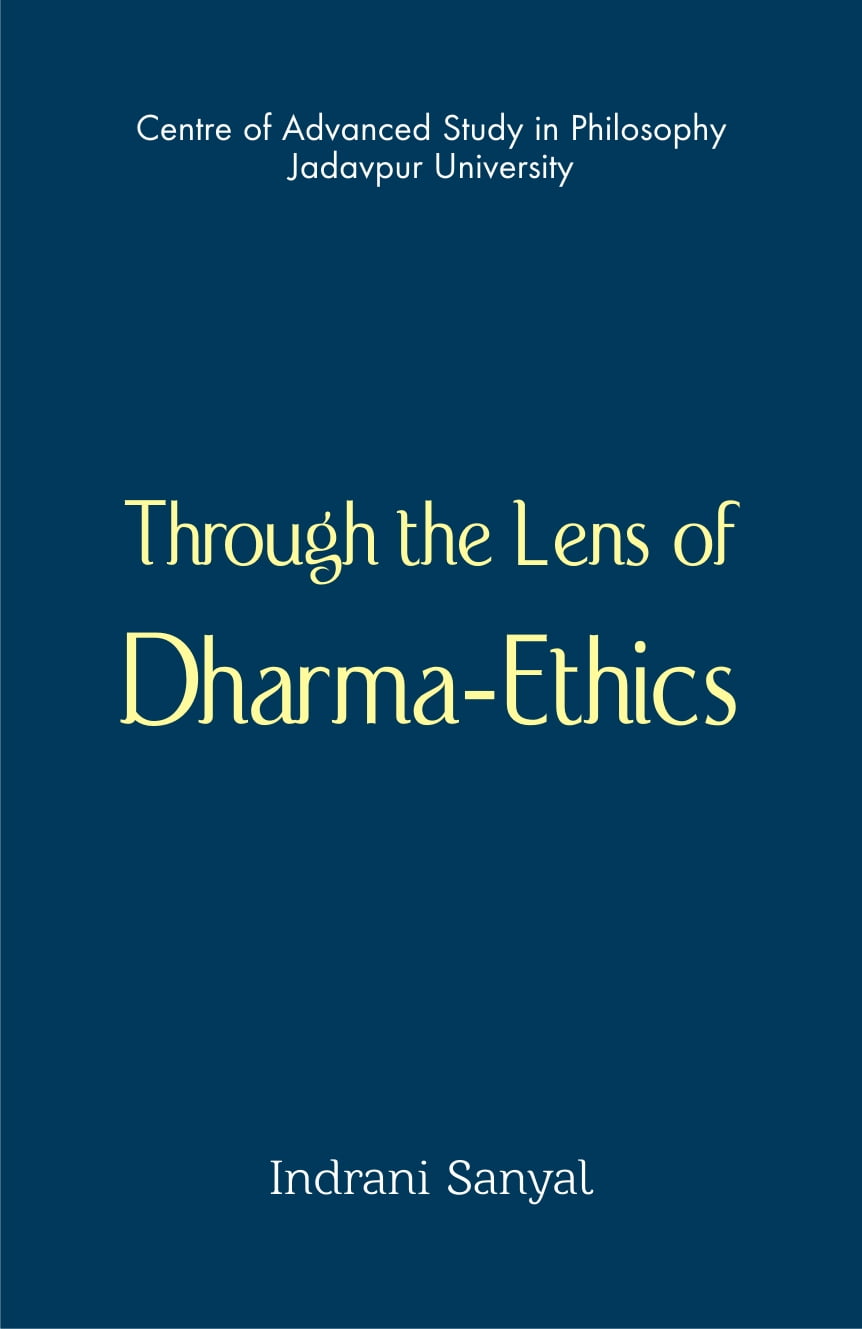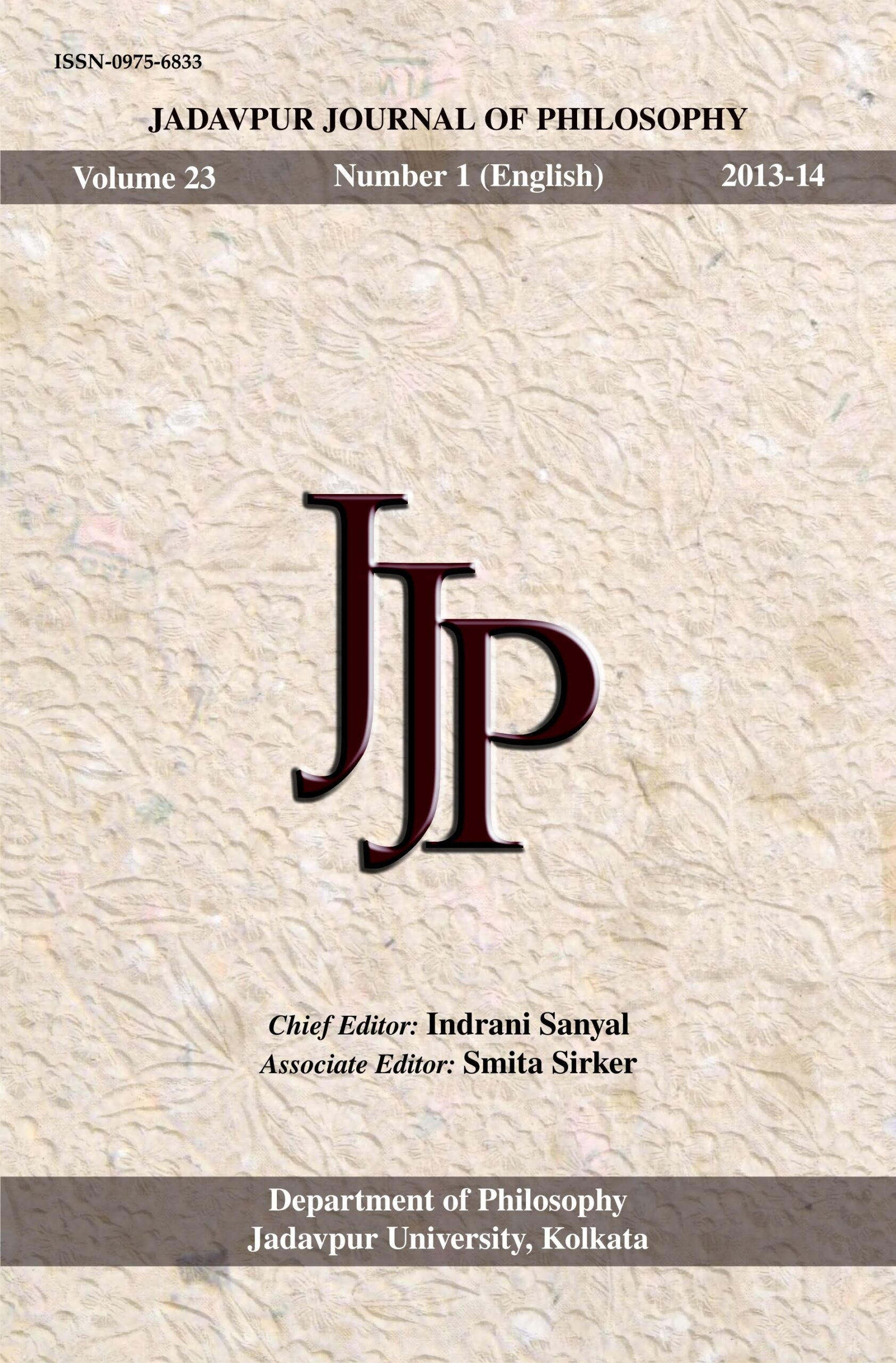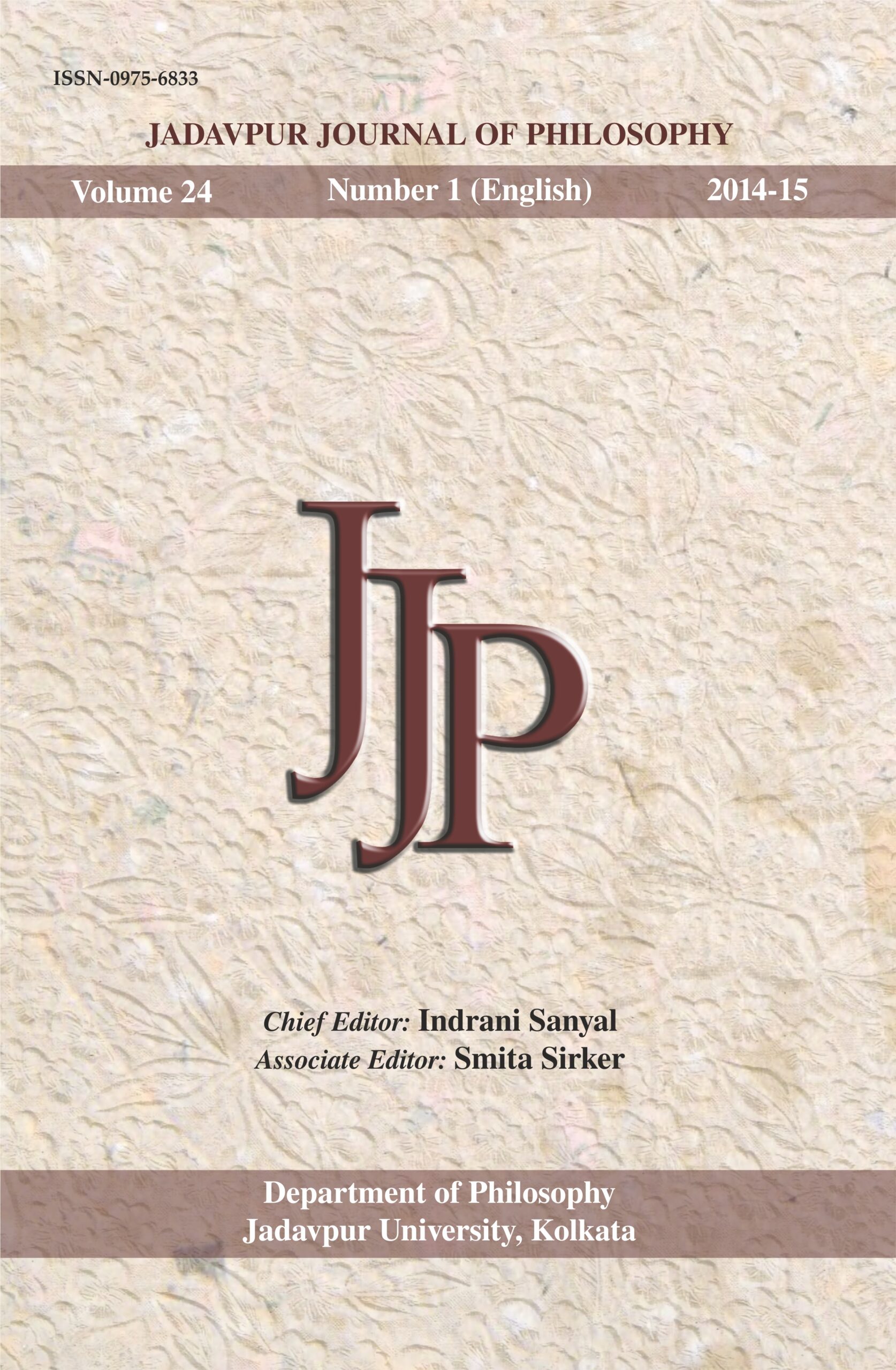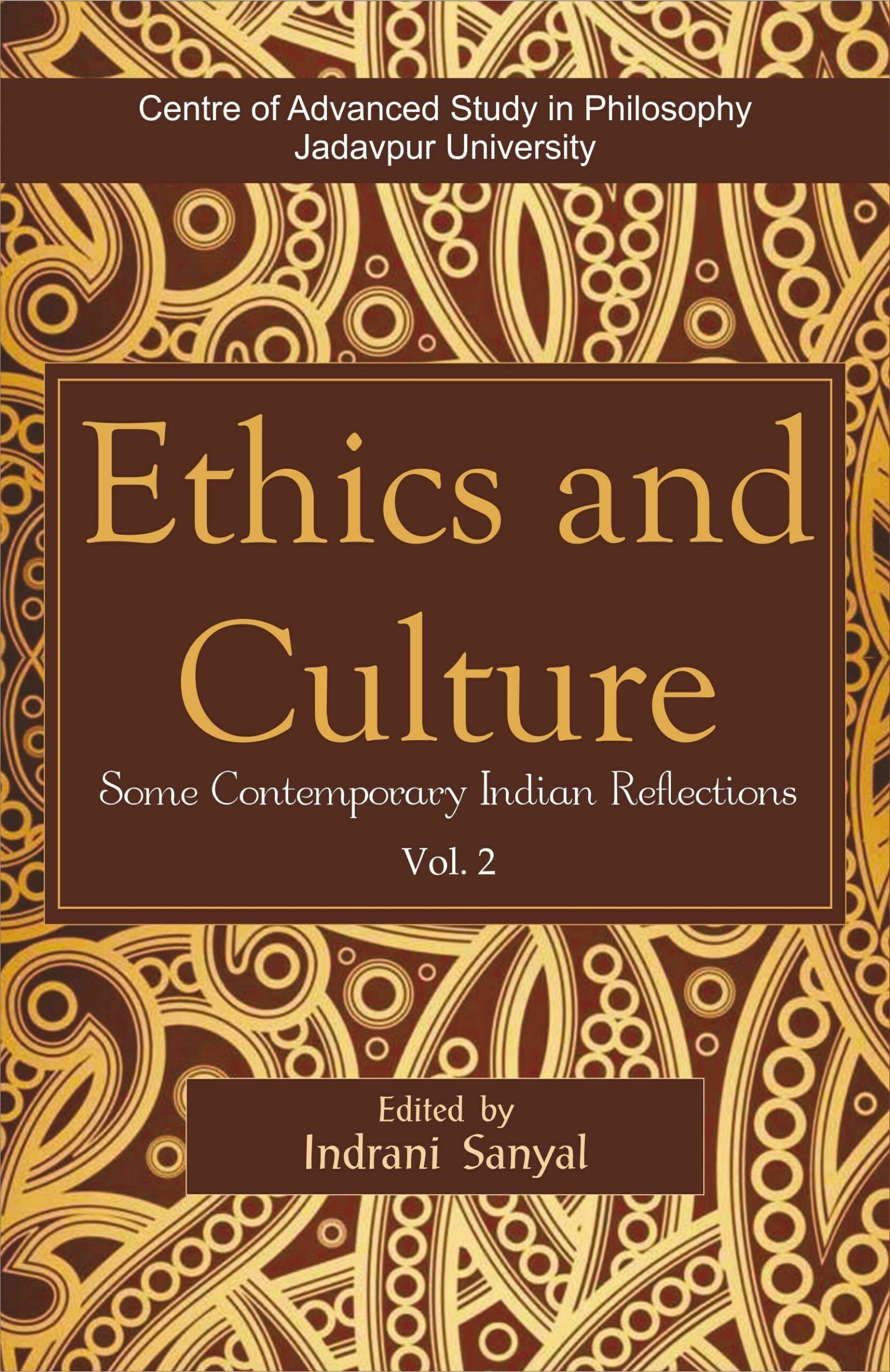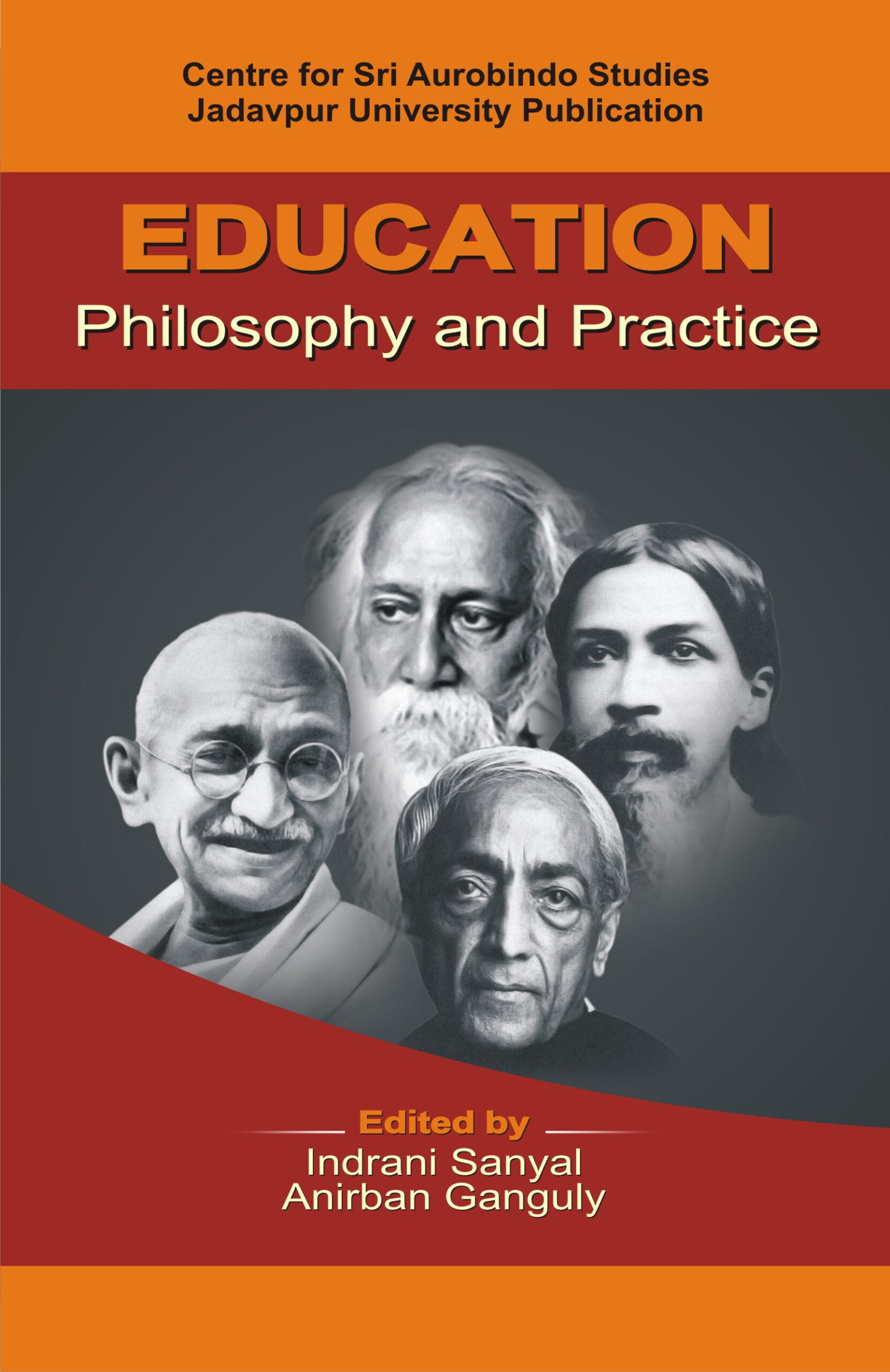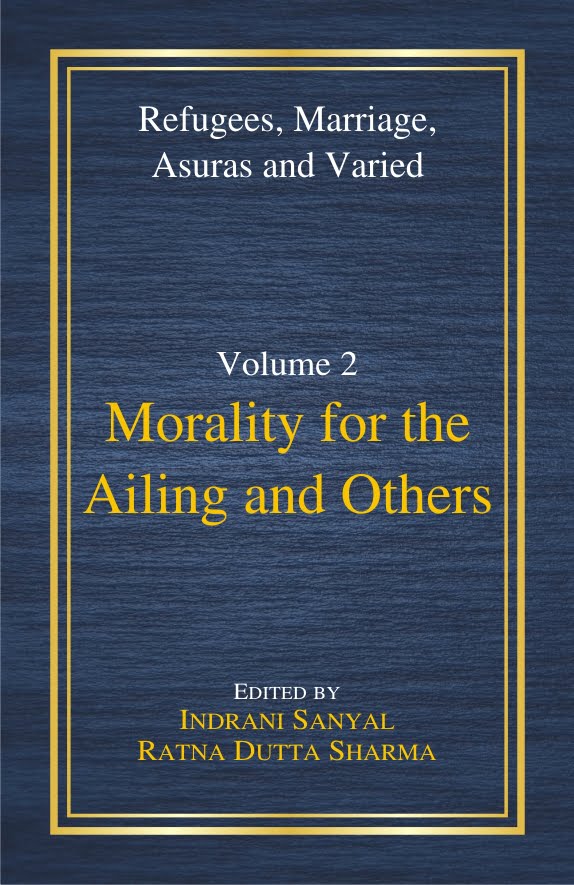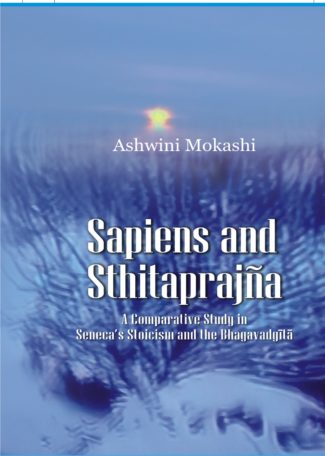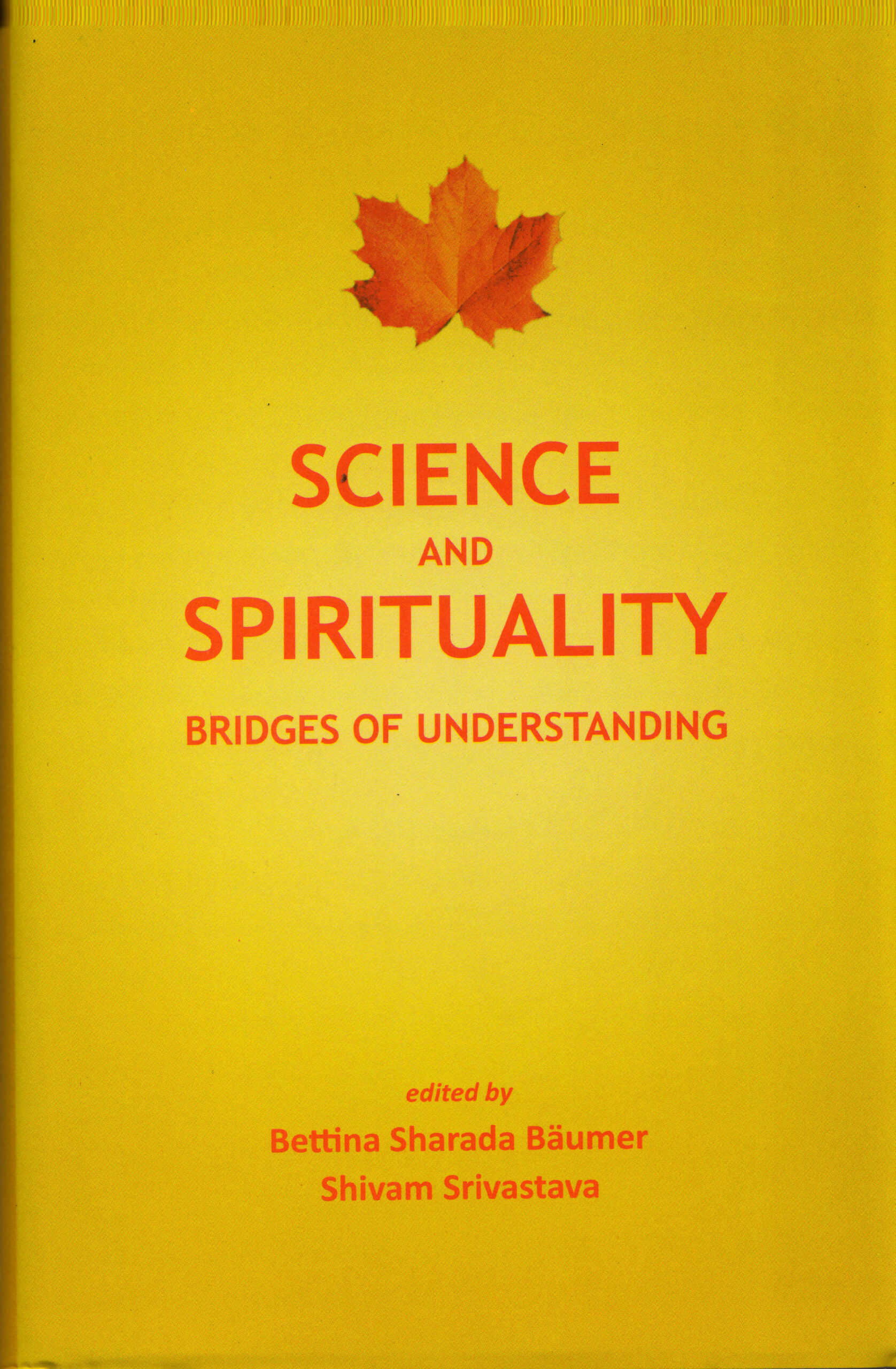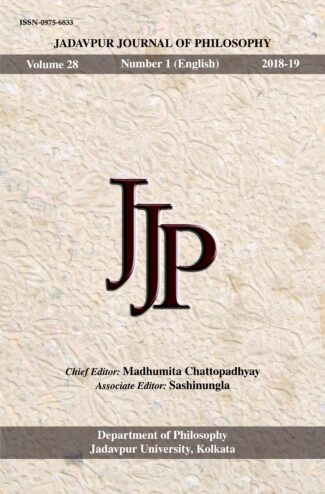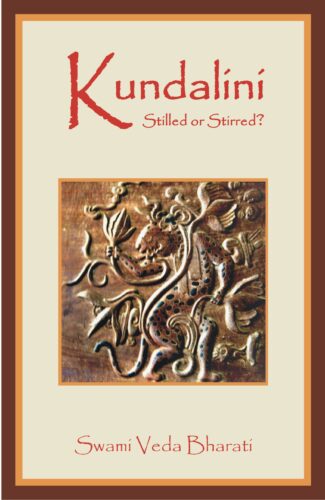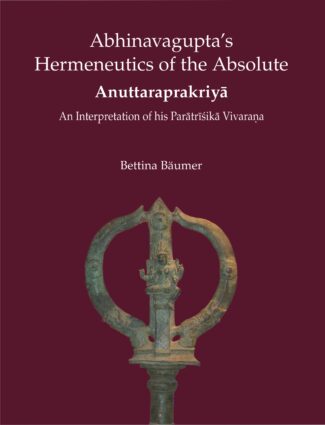

Jadavpur Journal of ...
Jadavpur Journal of Philosophy (Vol. 23, no. 1)
by: Indrani SanyalJadavpur Journal of Philosophy is a refereed, bi-issue journal, in English (No. 1) and Bengali (No. 2) published annually by the Department of Philosophy, Jadavpur University, Kolkata, India. The journal volume in Bengali is titled Darsan Biksa. The journal is devoted to the publication of original scholarly papers in any branch of philosophy. Its objective is to encourage contributions from scholars, dealing with specific philosophical problems connected with their respective fields of specialization.
₹300.00 Original price was: ₹300.00.₹270.00Current price is: ₹270.00.
ISBN: 9788124607626
Year Of Publication: 2014
Edition: 1st
Pages : 171p.
Language : English
Binding : Paperback
Publisher: Jadavpur University
Size: 24
Weight: 350
Jadavpur Journal of Philosophy is a refereed, bi-issue journal, in English (No. 1) and Bengali (No. 2) published annually by the Department of Philosophy, Jadavpur University, Kolkata, India. The journal volume in Bengali is titled Darsan Biksa. The journal is devoted to the publication of original scholarly papers in any branch of philosophy. Its objective is to encourage contributions from scholars, dealing with specific philosophical problems connected with their respective fields of specialization.

- Sale!Sapiens and Sthitaprajna by: Ashwini A. Mokashi
₹800.00Original price was: ₹800.00.₹720.00Current price is: ₹720.00.Sapiens and Sthitaprajna studies the concept of a wise person in the Stoic Seneca and in the Bhagavadgita. Although the Gita and Seneca’s writings were composed at least two centuries apart and a continent apart, they have much in common in recommending a well-lived life. This book describes how in both a wise person is endowed with both virtue and wisdom, is moral, makes right judgements and takes responsibility for actions. A wise and virtuous person always enjoys happiness, as happiness consists in knowing that one has done the right thing at the right time.
Both Seneca and the Gita demand intellectual rigour and wisdom for leading a virtuous and effective life. They provide guidelines for how to become and be wise. Both systems demand a sage to be emotionally sound and devoid of passions. This leads to mental peace and balance, and ultimately tranquillity and happiness. While surveying these similarities, this study also finds differences in their ways of application of these ideas. The metaphysics of the Gita obliges the sage to practise meditation, while the Stoics require a sage to be a rational person committed to analysing and intellectualizing any situation.
This comparative study will be of interest to students of both Ancient Western and Ancient Indian Philosophy. Practitioners of Stoicism and followers of the Gita should find the presence of closely-related ideas in a very different tradition of interest while perhaps finding somewhat different prescriptions a spur to action. - Sale!Science and Spirituality by: Bettina Sharada Bäumer
₹1,000.00Original price was: ₹1,000.00.₹900.00Current price is: ₹900.00.A dialogue between science and spirituality is a necessity in our times where both, differences and mutual enrichment of the two great fields of human approach to reality, are taking place. This volume addresses this need from the perspective of different areas of science and spiritual traditions. The starting point is the intention of the founder of the IIAS, Dr S. Radhakrishnan, who saw that “both the practice of science and experience of spirituality are intimately related to being human”. Although much thought has gone into their relationship, the present volume intends to broaden and deepen the possibility of a harmonious integration, necessary to overcome the present-day crisis of humanity.
From the side of science, the contributors come from the fields of physics, plant biology, neuroscience, psychology, ecology and philosophy of science; and from the side of spirituality, following traditions and spiritual masters are represented: PÀtaðjala Yoga, Trika Œaivism of Kashmir, VedÀnta, Buddhism, Christianity, Theosophy, and Rabindranath Tagore, Swami Vivekananda and J. Krishnamurti. The deliberations included topics such as Awareness in plants, Neuroplasticity and Habit, appropriate use of terms such as “Consciousness” and “Energy” in different contexts, clarifying several issues concerning the on-going dialogue. The contributing scholars have built “bridges of understanding”, thus encouraging the reader to proceed further in this quest. - Sale!Jadavpur Journal of Philosophy by: Madhumita Chattopadhyay
₹300.00Original price was: ₹300.00.₹270.00Current price is: ₹270.00.This book proposes to take up the question of Universal Causation to examine thoroughly as how far it is right to regard Brahman as the Universal Cause and how far strakra himself lent his support to each of the inter-conflicting schools of Vednta. This book should, therefore, benefit all who are devoted to the philosophic teachings of Advaita Vednta and its preceptors.
- Sale!Kundalini by: Swami Veda Bharati
₹600.00Original price was: ₹600.00.₹540.00Current price is: ₹540.00.“Tantra, an exposition of Sri-vidya, is a thread of Vedic tantu. This ray of the light of consciousness folds upon itself as a coil (kundala) forming the coiled energies of the conscious universe, thus becoming kundalini.
This book looks at Tantra from a different perspective against the common view of it being more associated with its carnal/sexual nature. Tantra is the “art of celibacy”. Human beings are a wave in the ocean of Consciousness and this wave passes through our psycho-physiological complex compound, forming the personal kundalini. All sensations in human body are manifestations of the presence of kuõóalinã. Our desires are the signals released by the kundalini. Different psycho-physical apparatuses are plugged into it like electric plugs in different socket.
This volume, while portraying kundalini from its psycho-physical and spiritual implications and impacts, tries to alleviate some misconceptions about the nature of cakras — the consciousness centres. It deals at length with the phenomena of higher levels of spiritual evolution — “raising the kundalini” and “opening the cakras” — helping one drop all mental habit patterns to achieve “liberation”.
This book is a “must read” for the practitioners of Yoga and all who want to take their spiritual life to a new realm. “ - Sale!Abhinavaguptas Hermeneutics of the Absolute by: Bettina Baumer
₹1,800.00Original price was: ₹1,800.00.₹1,620.00Current price is: ₹1,620.00.The Paratrishika Vivarana by the great Kashmiri philosopher and mystic Abhinavagupta is an extensive commentary on the Paratrishika Tantra, and it is one of the most profound texts, not only of non-dualist Kashmir Shaivism, but of Indian philosophy and mysticism in general. The present work attempts to make this difficult text accessible, by culling out the important themes and offering an interpretation. The main focus is on the understanding of the Absolute (Anuttara) and the ways to realize it. The central theme of mantra also leads to a mysticism of language with its philosophical implications. All these reflections and practices are inscribed in the theory that everything is related to the totality, every part contains the whole of reality (sarvam sarvatmakam). It is this holistic vision of Abhinavagupta, based on the Tantras, which makes this work so relevant in our times of fragmented aspects of life and knowledge in search of integration. No doubt, in the view of the Tantra and of Abhinavagupta, language and mantra provide the key.
This fascinating book is an important contribution to studies and interpretations on Kashmir Shaivism, its spirituality and philosophy, and on Abhinavagupta in particular.


